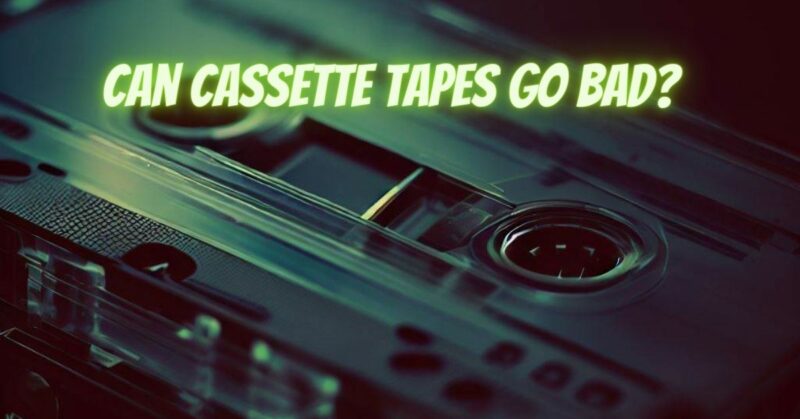Cassette tapes, once the hallmark of portable music and audio recording, continue to hold a special place in the hearts of music enthusiasts and collectors. However, like all physical media, cassette tapes are not immune to the effects of time and environmental factors. In this article, we will explore the intriguing question: Can cassette tapes go bad? We’ll delve into the various forms of deterioration that can affect cassette tapes and how to preserve your beloved audio treasures.
Understanding Cassette Tape Composition
Before delving into the topic, it’s essential to understand the fundamental composition of cassette tapes:
- Magnetic Tape: The magnetic tape is at the core of a cassette. It is coated with iron oxide particles and serves as the canvas for capturing and storing audio signals in the form of magnetic patterns.
- Plastic Shell: The cassette tape resides within a protective plastic shell, which not only keeps the tape safe but also facilitates easy handling and playback.
- Playback and Recording Components: Inside a cassette player or recorder, the tape interacts with playback and recording heads, essential for extracting audio and adding new content.
Forms of Cassette Tape Deterioration
Cassette tapes are subject to various forms of deterioration, which can affect their playability and audio quality:
- Magnetic Signal Loss: Over time, the magnetic signal on the tape can weaken, leading to a loss of audio fidelity and quality.
- Tape Deterioration: The tape itself can degrade, becoming brittle, developing wrinkles, or turning sticky with age, potentially causing playback problems.
- Mold and Fungus: In humid environments, cassette tapes can develop mold or fungus, leading to permanent damage.
- Tape Stretching: Frequent playback and improper handling can cause the tape to stretch, leading to playback issues and reduced tape tension.
Can Cassette Tapes Go Bad?
The answer is yes, cassette tapes can indeed go bad, but the extent and speed of deterioration depend on several factors, including:
- Tape Quality: High-quality tapes, especially those from reputable manufacturers, tend to withstand the test of time better than lower-quality counterparts.
- Playback and Recording Equipment: The condition, alignment, and maintenance of your playback and recording equipment are significant. A well-maintained player or recorder is less likely to damage tapes.
- Storage Conditions: How and where you store cassette tapes plays a vital role. Cool, dry environments away from direct sunlight and extreme temperatures are ideal.
- Playback and Recording Settings: Utilizing the correct bias settings and tape type (normal, chrome, or metal) can impact the tape’s longevity and vulnerability to degradation.
- Handling: Delicate and cautious handling of tapes is paramount. Avoid touching the exposed tape surface, as oils can compromise its integrity.
- Playback Frequency: Frequent playback and recording can lead to tape stretching and wear on the playback and recording heads, which may accelerate degradation.
Preserving Your Cassette Tapes
To preserve your cassette tapes and minimize deterioration:
- Proper Storage: Store tapes vertically in a cool, dry place away from direct sunlight and extreme temperatures.
- Handling: Handle tapes with clean hands, holding them by the edges to avoid touching the tape surface.
- Regular Playback: Occasionally play your cassette tapes to keep them in good condition. Infrequent use can also lead to deterioration.
- Transfer to Digital: Consider transferring important or cherished recordings to digital formats for long-term preservation.
While cassette tapes can go bad over time due to a range of factors, including tape quality, equipment condition, and storage practices, they remain an enduring medium for preserving audio memories. By understanding the forms of deterioration and taking steps to protect and maintain your cassette collection, you can continue to enjoy the nostalgic charm and audio treasures that cassette tapes offer for years to come.

